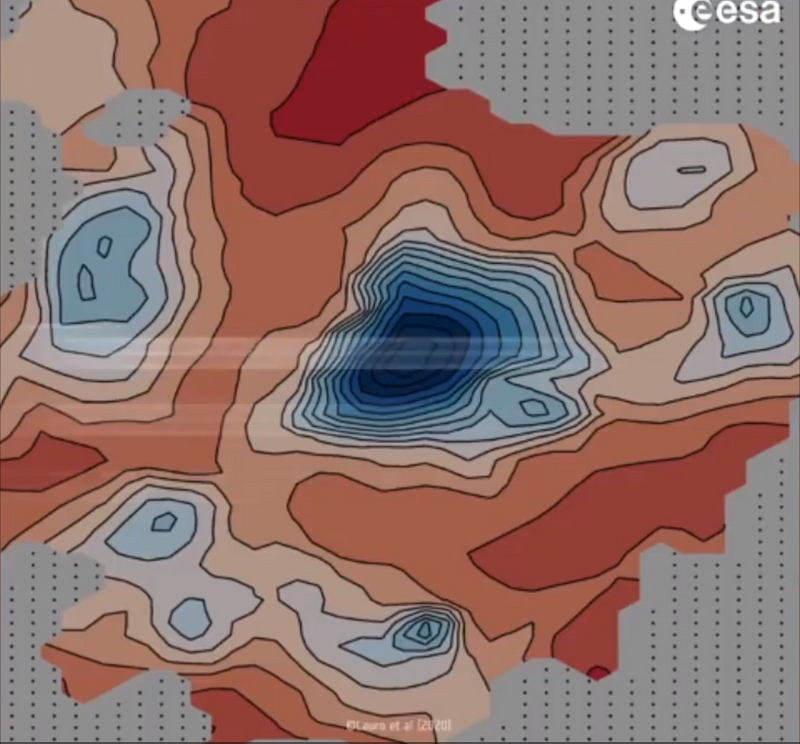Exploring the Hidden Water of Mars: New Discoveries Await
Written on
The Quest for Water on Mars
Recent explorations have revealed that Mars may harbor more water than previously thought. Researchers are captivated by the discovery of three hidden lakes beneath the planet's icy crust. Water has long been regarded as a crucial element for life, and astronomers have consistently sought it out on other celestial bodies as an indicator of potential life.
Moreover, signs of possible life are not exclusive to Mars; for instance, phosphine molecules have been detected in the upper atmosphere of Venus, further expanding the search for extraterrestrial life.
Mars stands out as a prime candidate for habitability beyond Earth. It resides in the so-called 'Goldilocks zone' of our solar system, has geological activity, and possesses remnants of a magnetic field. Since 2008, researchers have also identified water ice deposits beneath its surface. NASA's Mars Reconnaissance Orbiter provided a comprehensive water ice map, enhancing our understanding of these vital resources.
The search for alien life took a significant turn this year as scientists unveiled evidence of an ancient river on Mars. They found that a prominent rocky cliff in the northwestern region of the Hellas basin appears to have formed over time due to the flow of water from an ancient river.

Insights from Research
“We identified the same body of water, but we also found three other bodies of water around the main one. It’s a complex system… There may have been a lot of water on Mars, and if there was water, there was the possibility of life.” ~ Elena Pettinelli, Co-Author
In an exciting development, astronomers have confirmed the existence of four lakes beneath Mars’ surface. This includes three newly identified lakes and a previously discovered saltwater lake from two years ago, which had faced skepticism. The recent findings were backed by data from the European Space Agency's Mars Express, which corroborated the previous lake discovery made in 2018.
Skepticism arose initially due to the limited observations—only 29 were made from 2012 to 2015. However, the latest study analyzed a larger dataset of 134 observations taken from 2012 to 2019, strengthening the case for these lakes.
Employing the Mars Advanced Radar for Subsurface and Ionosphere Sounding (MARSIS), the Mars Express team conducted scans of the southern polar region. This radar technology emits radio waves that reflect off various subsurface materials, providing clues about their composition.

The data indicated high reflectivity in certain areas, suggesting the presence of liquid water trapped beneath over a kilometer of ice. The lakes occupy an area of approximately 75,000 square kilometers, with the largest lake measuring about 30 kilometers across, surrounded by three smaller bodies of water.
Although liquid water is unlikely to exist on the Martian surface due to the planet's thin atmosphere and low pressure, scientists speculate that water could be trapped underground. This raises intriguing possibilities for the Red Planet's habitability in its distant past, reminiscent of the subsurface oceans observed on distant celestial bodies like Saturn's moon, Enceladus.
Critics note that for water to remain liquid under Martian conditions, it would require a high salt concentration—potentially five times that of Earth's oceans—capable of supporting life. The discovery of these lakes has reignited the debate about the nature of Martian subsurface water, with opinions divided among experts.
Future Exploration
Verification of these findings may come from the upcoming Chinese Tianwen-1 mission, which consists of a rover and an orbiter equipped with various scientific instruments. This mission is set to enter Martian orbit in February 2021, and the scientific community eagerly anticipates its contributions to our understanding of Mars.
The first video explores the paradox of liquid water on Mars and its surprising solutions.
The second video discusses new evidence regarding trapped water on Mars.
Complete research findings have been published in the Journal Nature Astronomy.

Stay informed with the content that matters — Join my mailing list.